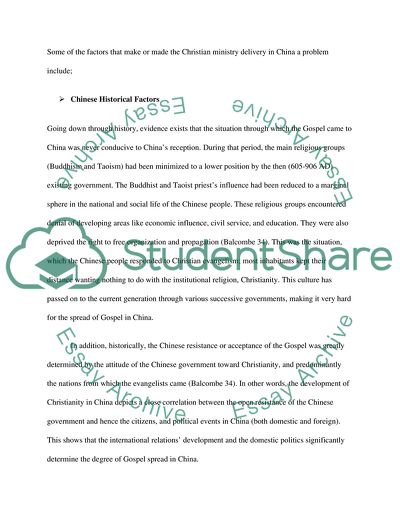Cite this document
(Effects of Cultural Differences on Ministry Delivery in China Report Example | Topics and Well Written Essays - 2250 words, n.d.)
Effects of Cultural Differences on Ministry Delivery in China Report Example | Topics and Well Written Essays - 2250 words. https://studentshare.org/religion-and-theology/1857352-cross-cultural-ministry-analysis
Effects of Cultural Differences on Ministry Delivery in China Report Example | Topics and Well Written Essays - 2250 words. https://studentshare.org/religion-and-theology/1857352-cross-cultural-ministry-analysis
(Effects of Cultural Differences on Ministry Delivery in China Report Example | Topics and Well Written Essays - 2250 Words)
Effects of Cultural Differences on Ministry Delivery in China Report Example | Topics and Well Written Essays - 2250 Words. https://studentshare.org/religion-and-theology/1857352-cross-cultural-ministry-analysis.
Effects of Cultural Differences on Ministry Delivery in China Report Example | Topics and Well Written Essays - 2250 Words. https://studentshare.org/religion-and-theology/1857352-cross-cultural-ministry-analysis.
“Effects of Cultural Differences on Ministry Delivery in China Report Example | Topics and Well Written Essays - 2250 Words”. https://studentshare.org/religion-and-theology/1857352-cross-cultural-ministry-analysis.


